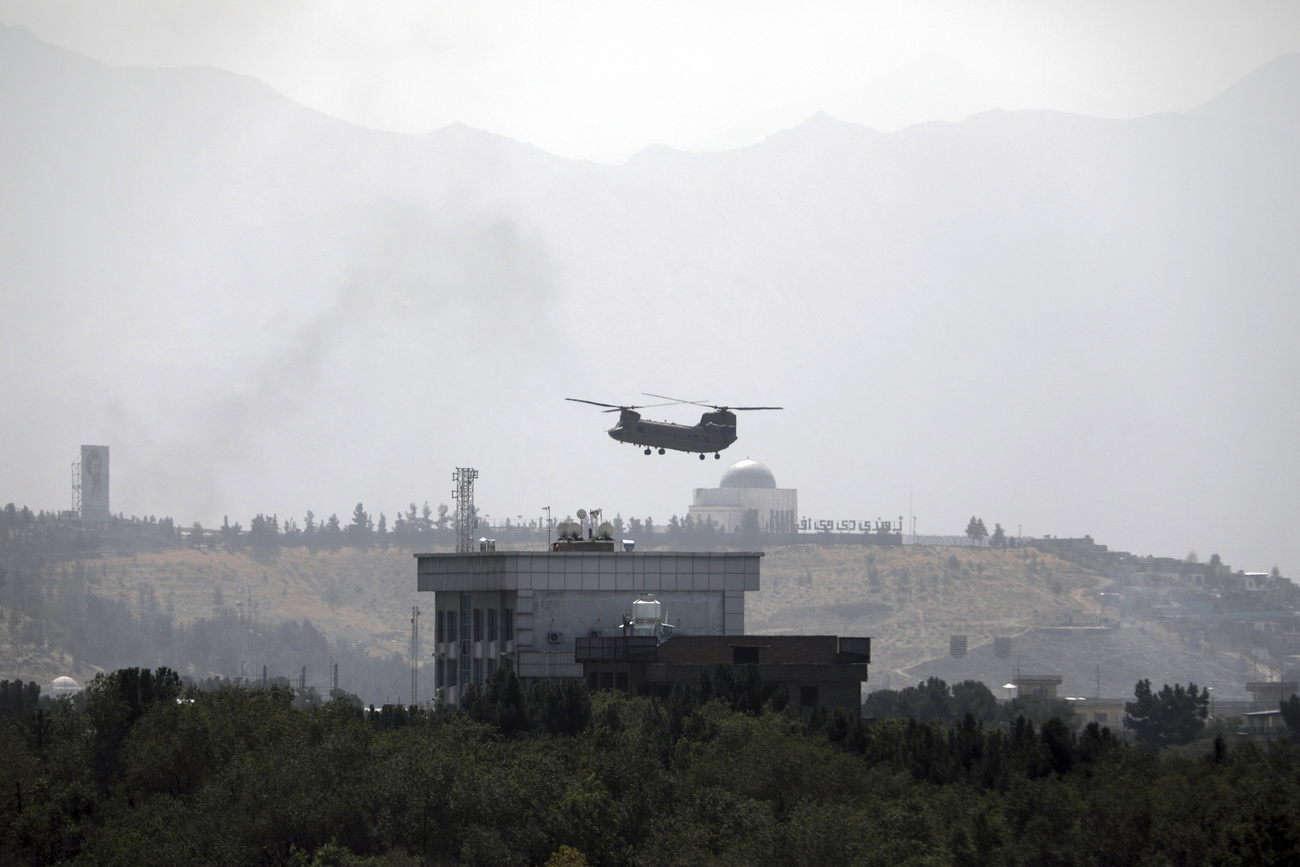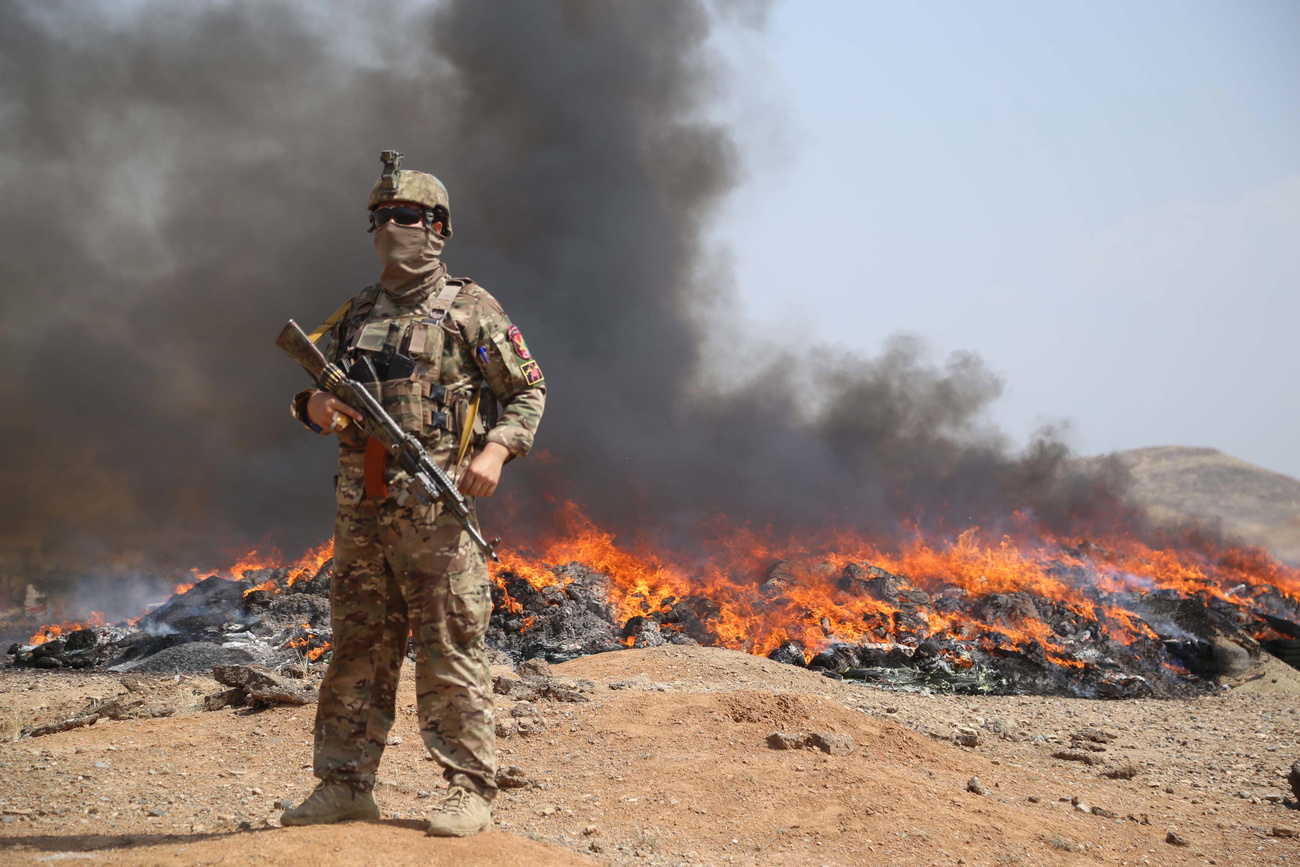
End of ‘endless war’ in Afghanistan presents few solutions
The rapid, unanticipated success of the Taliban in Afghanistan brings back memories of the fall of Saigon in 1975 and represents a crushing defeat for American foreign policy. In seeking to respond to the impending Afghan humanitarian and human rights crises, the Geneva international community is faced with many more questions than answers.
The hasty withdrawal of American troops and citizens from Afghanistan marks the end of the longest war in US history. For 20 years, US presidents, both Republican and Democrat, with the help of NATO and allies, have had a continued presence there. The mission evolved from reprisals and security to a form of undeclared nation building. Thousands of soldiers have been killed in the conflict, more than $83 billion dollars spent on material for the Afghan army and more than $1 trillion dollars wasted. (The Afghan army had over 300,000 soldiers outfitted and trained by the United States; the Taliban roughly 75,000 fighters).
But the Afghan government never won “the hearts and minds” of the people. That is more than evident from the rapid Taliban success throughout the countryside and cities. The government’s level of corruption and incompetence was underestimated by the United States military and foreign policy communities. While the withdrawal of foreign troops was inevitable and announced, the unwillingness and inability of the Afghan army to defend was a crushing blow. Most observers anticipated a civil war of perhaps a year or 18 months between the Afghan army and the Taliban. In 10 days, the army rolled over.

More
Swiss foreign ministry staff flown out of Kabul
In a change largely welcomed by Western governments and in Geneva, President Biden has stated that “America is back” with a more international, multilateral foreign policy than Donald Trump’s “America First”. Will the fall of Afghanistan to the Taliban change this newfound goodwill towards the United States? How does it affect America’s prestige in the world? I suspect some unease among allies such as Taiwan who must be wondering about US promises to defend them.
Peace deal ignored
The potential of diplomacy and humanitarian aid to remedy the situation is also in question. A peace agreement signed in Doha between the United States and the Taliban in 2020 has had no effect; nor have subsequent negotiations between the Afghan government and the Taliban, brought about under former US President Donald Trump’s administration.
“The delays that we see from the other side in the progress of talks are not corresponding to the sense of urgency that we have,” senior Afghan government negotiator Nader Nadery told the Wall Street Journal in July of the Taliban’s participation. “The violence needs to end, the war needs to end, and we need to reach a political settlement,” she added. That settlement never came.
Today, Kabul airport is overwhelmed. The United States must not only help its citizens depart; it is also morally responsible for those under threat who worked for and with them for the last two decades. Not everyone who wants to leave will be able to do so. The Afghan president has fled, leaving no legitimate, internationally recognised government in place.
While some Taliban leaders have expressed a policy of no reprisals for those who helped the government or the allies and a willingness to allow young women to continue schooling, the fact that the promises given in Doha have not been followed does not bode well for the future of human rights in Afghanistan. The Taliban’s policies in its controlled areas have been in direct opposition to internationally accepted human rights norms.

More
Switzerland halts repatriations to Afghanistan
No easy answers
Those trying to respond to the unfolding humanitarian crisis are faced with more questions than answers. There is no way the Geneva community can be assured that the Taliban will cooperate, as they have no track record of doing so. Will Turkey and other countries open their borders to those fleeing? How will an orderly response to the exodus work since the Taliban have shown little respect for humanitarian and refugee norms in the past?
Aid agencies can only function within countries if they have the consent of the ruling authorities. Will the Taliban accept foreign intervention, even humanitarian, when the aid is provided by those traditionally hostile to their establishing a fundamentalist caliphate? Even those aid agencies working outside of governments will be hard pressed to convince the radical Taliban that it is in everyone’s interest to cooperate.
Lessons learned?
Easy comparisons are being made between the fall of Saigon in 1975 and the fall of Kabul. The Vietnam War was about stopping the spread of communism, and the United States lost the War despite overwhelming military superiority. Today, Vietnam is a peaceful and thriving country.
The Afghan intervention was originally about containing terrorism. That has failed. Al Qaeda and organizations such as Daech still exist. Once again, in a different context, overwhelming military superiority failed. But one can hardly anticipate Afghanistan becoming a peaceful and thriving country like Vietnam. It will probably remain a clannish country ruled by local warlords who have been able to defeat three empires, the British, Soviets and now the Americans.
What lessons can be learned from the collapse of the Afghan government after 20 years of Western support? The most obvious is that military might does not guarantee success in asymmetric warfare. The Taliban, like the Vietcong, were able to succeed despite overwhelming military inferiority. The “hearts and minds” of people did not follow America’s military strength.
And once again, like in Vietnam, military intelligence was unable to describe the actual situation on the ground.
Will these lessons be learned? Doubtful. The hubris behind the 20-year intervention was originally an emotional reaction to September 11, with President George W. Bush sending US troops to Afghanistan in response to the attacks. The mission was to punish those responsible and ensure that Afghanistan would not harbor international terrorists.
Over time, it became more than that. As in the rice paddies of Vietnam, the United States became mired in unfamiliar terrain thinking that it had all the solutions. Whether the fall of Kabul will change that hubris remains to be seen. There is no evidence to support that possibility.
The indispensable, exceptional nation is too mired in its own self-image. And International Geneva, among many others, will have to scramble to pick up the broken pieces.

In compliance with the JTI standards
More: SWI swissinfo.ch certified by the Journalism Trust Initiative





























